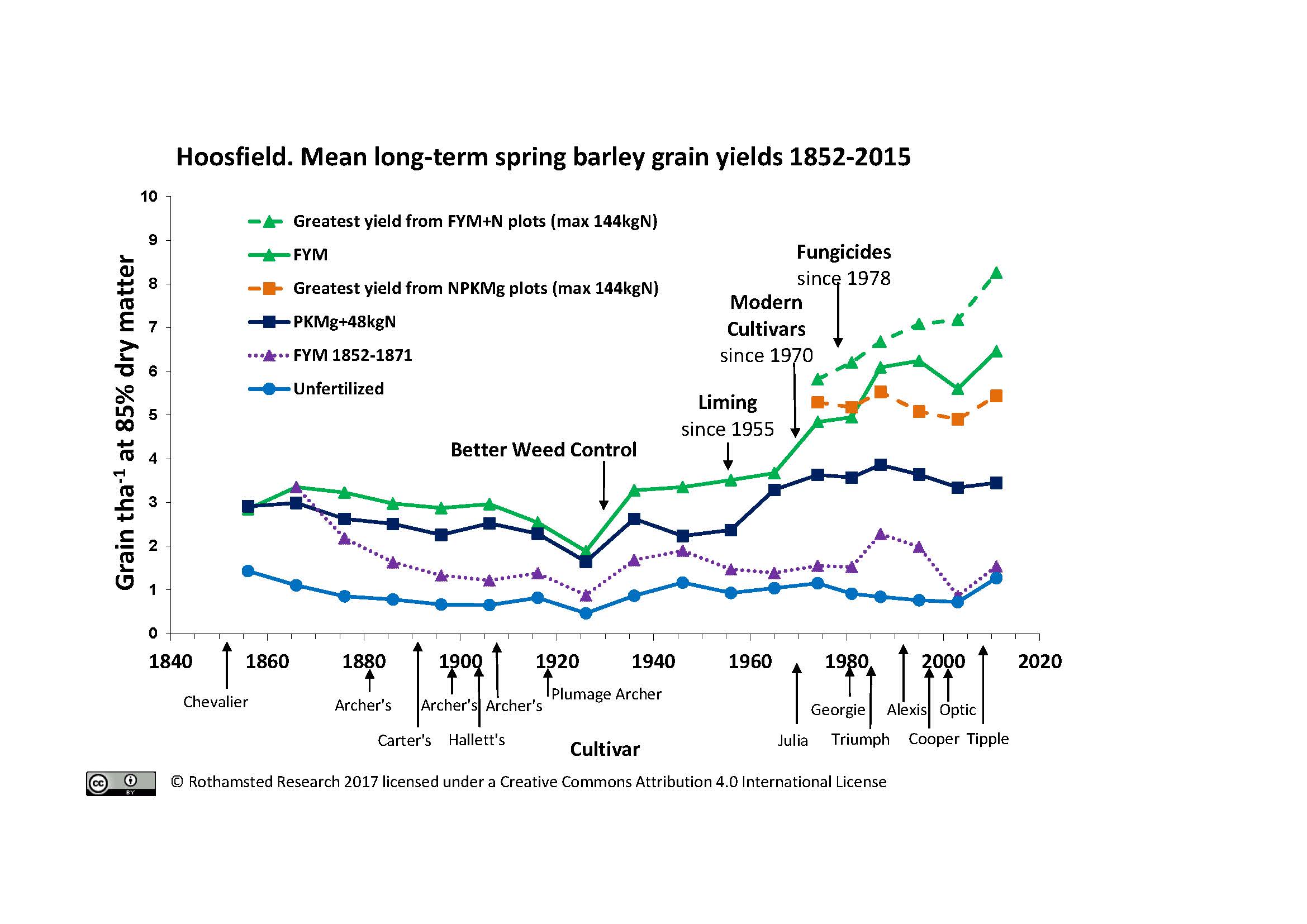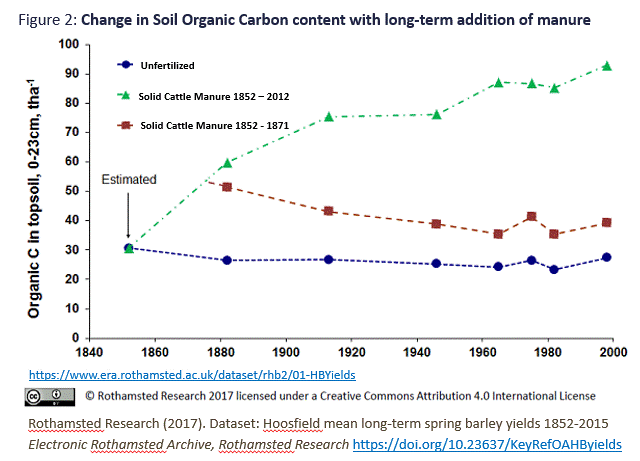Benefits of manure
AGRONOMIC INFORMATION FROM ONTARIO'S CROP SPECIALISTS

THE VALUE OF an organic amendment comes in the nutrients provided along with other components that benefit soil health. The benefit that adding manure brings to soil often is difficult to measure in the short term. Long-term rotation studies such as those shown in figure 1 and 2 demonstrate the important function that the addition of organic amendments have in this process. In Figure 1, a research trial in the UK has been monitored for over 150 years. One treatment had about 15 tons per acre of solid cattle manure added every year for almost 20 years between 1842 and 1871, while another remained unfertilized. Since 1872, both fields have remained unfertilized. Even more than a century after the application of manure, the yield benefits are still visible in improved grain yields. Not surprisingly, the continued application of manure in a third treatment resulted in a bigger yield impact.
A similar trend exists, as shown in Figure 2 when looking at the soil organic carbon (SOC) impact from regularly added manure. Even when the manure was only added initially for 20 years, the improvement in SOC reached a new equilibrium, but consistently better than the unfertilized treatment.
Adding organic amendments changes the biology of the soil in a way that influences the physical and chemical properties of the soil and alters crop productivity. Manure adds organic matter to the soil, which increases the microbial activity and production of polysaccharides and other components that help stabilize soil aggregates which in turn has a beneficial impact on improving water holding capacity and infiltration capacity. This leads to improvement in nutrient cycling and can help decrease bulk density and damage from compaction.


SOIL HEALTH AND NUTRIENT BENEFITS
The yield impact of adding manure is clear in figure 1. However, the yield was improved further when additional nitrogen was applied to supplement manure nutrients. The contribution from manure to soil health should never result in ignoring the nutrient component and managing the nutrient load to match crop requirements. With the current cost of fertilizer and environmental considerations, manure should be planned with proper rates and applied to maximize the timing of available nutrients for the crop. l

























